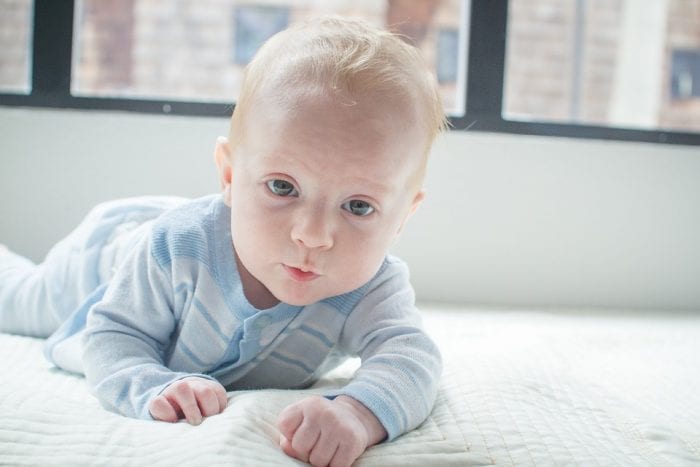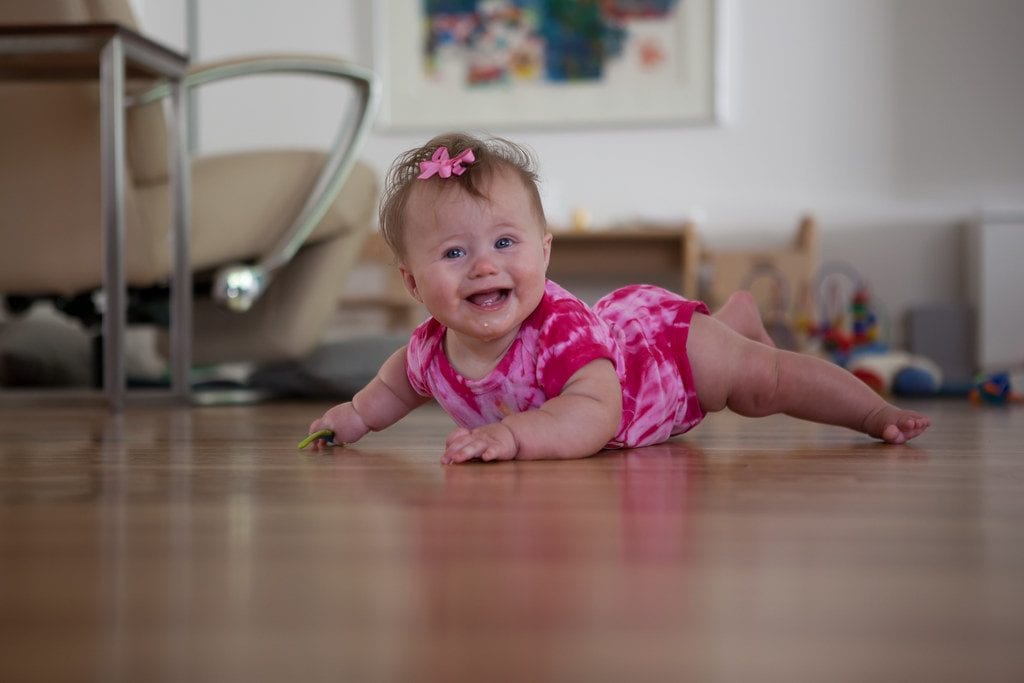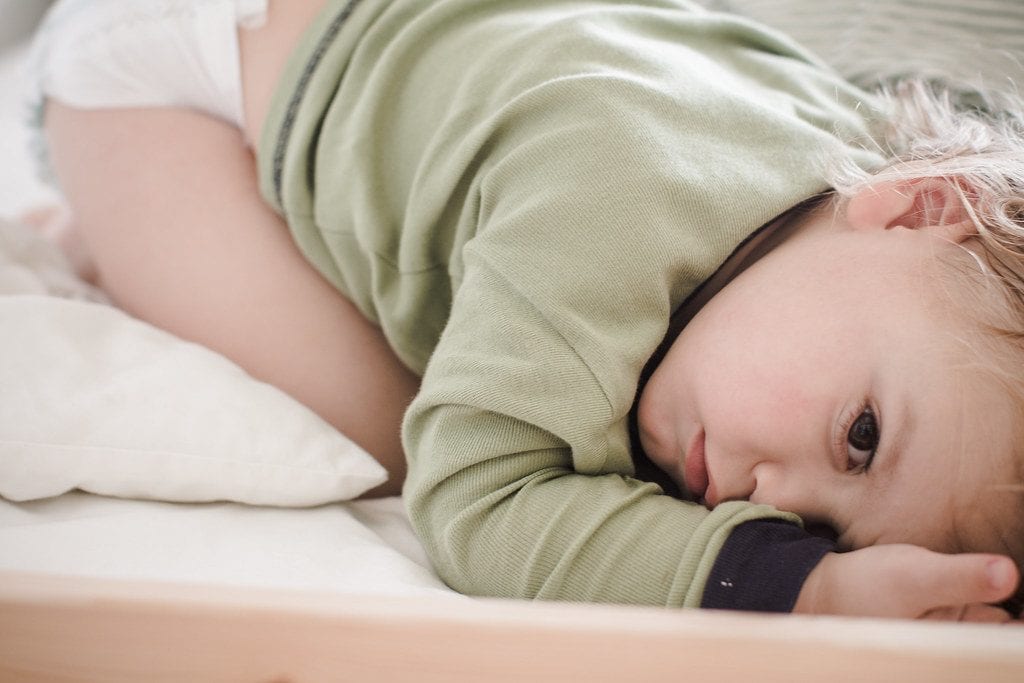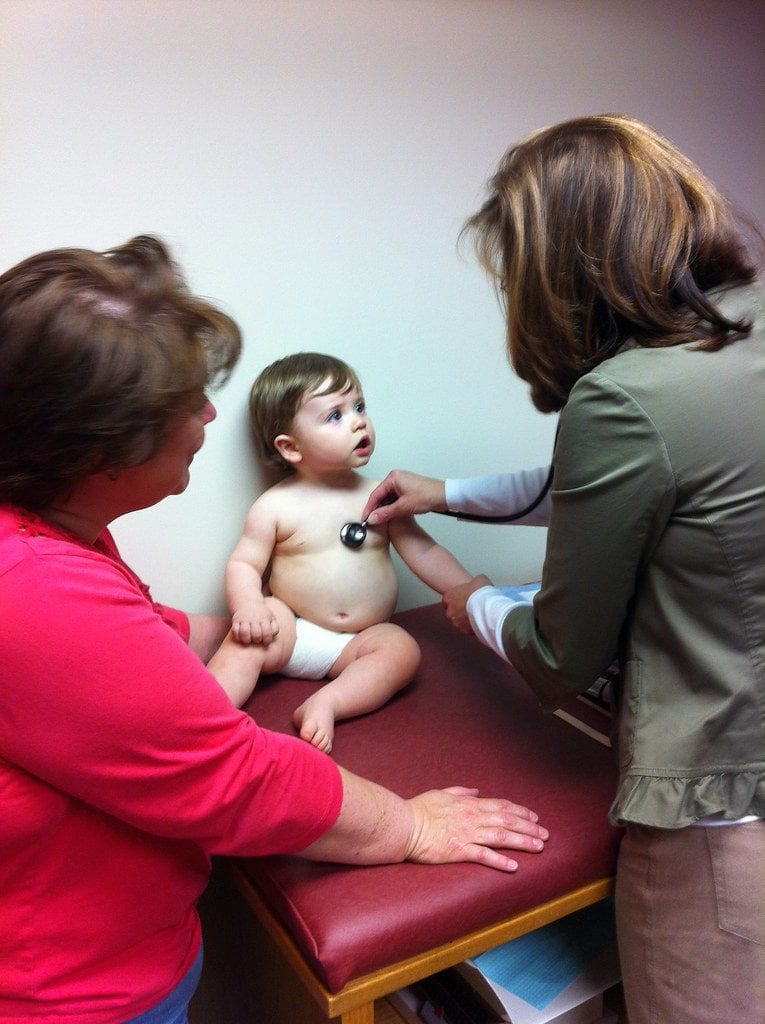What do youngsters rocking head and body in a child mean? Learn why things are tranquil and safe during children’s development. When you have a newborn child, every unique action they do is both a surprise and a mystery.

You may wonder if a certain thing is a cause for alarm, a cause for concern, or if it is normal. Youngster rocking simultaneously for various reasons; it can be a playful action signaling their desire to interact or part of developing motor skills as they prepare to crawl. It might also be a self-soothing behavior, a reaction to their environment, a sign of sleepiness, or, though less commonly, an early sign of autism.
Playful Baby
- When your baby rocks back and forth or tries to get their head rolling on the bed, they may feel like playing. They may feel very energetic and try to get your attention in other ways. In this case, maybe you should play with them a little bit and make sure that they’re having a good time. This behavior should go away with time. With that said, giving your baby attention and affection whenever you can is important for their development.
They’re Learning To Crawl
- If your child is rocking back and forth to and from, they may be trying to build up their point legs and arms strength to crawl. Children rocks back and forth; it gives them a sense of comfort. A baby starts to crawl around 6-10 months, so if your baby’s age is in that ballpark, they may be training themselves to crawl. They’re learning to move into a crawling motion through their rocking back and forth behavior; thus, they are maybe playing with all their motor skills to do so.
If you want to help your baby, put a toy near the baby; use that as an encouragement to train your child. It can be an incentive for them to learn to crawl so they can grab that toy. By learning early, they can be more independent and ready to take on the world.

They’re Reacting To You Or Someone
If you’re there promoting movement, your baby may be reacting to that. If your baby is rocking, look around and see if any external factors contribute to that. They may see something that is bothering them. If you get professional help, your baby will stop rocking and be calm. Then, you may be able to eliminate the cause and calm them down. It is a general rule to seek help if you think your kids have problems with how they sit, roll, pull, or even at walking.
Maybe They’re Sleepy
- Sometimes, babies are banging back and forth, particularly around seven months, in an attempt to fall asleep. We all know that toddlers like to rocking back and forth a bye or sleep in a rock and play, as they can rocking back and forth themselves to lull them to sleep. This may be something a new mom or dad parent shouldn’t care about unless they’re over two. If they’re too old and doing it, this bang may be a signs of a disorder or your child may be having some sleep problems. In case you’re not sure, it’s worth it to see your child’s healthcare provider to rule out sleep disorders, developmental disorders, as well as rhythmic movement disorders as well.

It Can Be A Sign Of Autism
- Some toddlers are rocking back and forth, then do it repetitively. It’s almost like they’re in a trance in rocking back and forth motion – they don’t like doing it. This may be a sign of autism. Okay, it’s not a sure sign of autism, but it’s something you may want to talk to a doctor about if you want to rule it out. Repetitive movement with no goal in mind is a sign of autism. Thus, by treating it early, your child can have a better chance of functioning as high as possible.
Head And Body Are Rocking
- If you see them rocking back and forth, or maybe they’re banging their head on the wall; this could be a sign of another developmental disorder. This especially applies if the baby is doing it during the daytime. It may be worth it to see a doctor about this situation. Too much headbanging can hurt the baby and possibly cause something worse down the line. Again, this is when you should consider putting them in a Rock N Play sleeper so that the child’s sleep will be more comfortable.
They May Be Upset
Sometimes, the explanation is simple. They’re upset. Instead of crying, most children keep swinging in an attempt to relieve their emotions. In a case like this, you may want to see what’s up. There may be something around them upsetting them, they may be hungry or sick. If you’re unsure, talk to a doctor and see if there’s any problem.
Are You Still Unsure? Seek Help From Professionals
Many times, your baby swinging is nothing to be worried about, and it’s a common sign of a growing baby. However, there are some cases where you may be worried, and reasonably so. If you suspect the reason is something bigger, perhaps it’s time to talk to a doctor and see what the problem is.
If it’s a problem, your doctor will treat your kid and help them to live a better life. It is better to seek professional help to know why they do that kind of thing. Nothing will go wrong by seeking help from a professional.

Worrying About Swinging Head And Body?
In many cases, the baby swinging simultaneously is nothing you should worry about. But if you’re unsure, it won’t hurt to seek a doctor.
As your baby grows, they will learn to express themselves in many ways, so encourage them to do so. This will prevent emotional problems in the future too. Don’t discourage banging, especially if it’s harmless.
Frequently Asked Questions (FAQs)
Are Banging Head And Body An ADHD?
Cot swinging in babies and toddlers may be a sign of ADHD. While swinging is normal for babies and normal part of baby’s development, ADHD symptoms may appear more exaggerated or trance-like. If parents are concerned it could be a sign of ADHD, it’s best to notice how the entire body is moving and whether the baby seems engaged and playful. In most cases, swinging is not indicative of ADHD, but wait and see if other symptoms appear and consult a pediatrician if worried.
Is Constant Banging And Rocking Bad For Baby?
Constant swinging simultaneously is generally not harmful to the baby, as it’s normal behavior for self-soothing or developmental milestones; however, if it’s persistent or accompanied by other concerns, it’s advisable to consult with a child’s pediatrician.
What’s The Reason My Babies Constantly Rocking Back And Forth?
Rocking is normal for many children and infants. Toddlers do this playfully and may make eye contact with you to get your attention. However, it can also be a sign of a developmental disorder. Pay attention to how they’re swinging and their general behavior. If they don’t seem engaged and playful, you may take a video and consult with your pediatrician.
What Does It Mean When My Baby Keeps Swinging ?
Infants swinging can mean several things. They may want to seek your attention or try to learn how to crawl. Your baby may also be too tired and is trying to sleep, or they’re bored, and nothing is stimulating them. It can also be a sign of a developmental disorder.
What Is Body Rocking Back And Forth
It is when an individual moves their body, rhythmically swaying simultaneously. Infants may do this while they’re in a sitting position or quadruped position.
What Mental Illness Causes Banging In Youngsters?
Swinging babies may be common among children with an autism spectrum disorder. Swinging is a repetitive behavior that also occurs in individuals with mental retardation and pervasive developmental disorder, among others.
Why Do Infants Shake Their Heads Simultaneously?
Babies start to develop their motor skills during the first few weeks. This movement signifies they may be imitating the people around them to gain control of their bodies. They may also shake their heads when trying to latch on during feeding. Likewise, it can be a sign of tiredness, and they are trying to soothe themselves. If fever or cold accompanies the shaking, or it seems trance-like, you may want to consult with your pediatrician about an ear infection or autism spectrum disorder.
What Does It Mean When A Youngsters Are Banging On Their Hands And Knees?
Swinging simultaneously on their hands and knees typically indicates that a baby is strengthening their muscles and honing their motor skills in preparation for crawling.
How Long Do Babies Rock Simultaneously Before Crawling?
Babies may do so for several weeks or even a couple of months as they develop the strength and coordination needed before they start crawling.
How Do I Stop My Baby From Rocking Simultaneously?
Last Updated on May 16, 2023 by Bry Roquero
DISCLAIMER (IMPORTANT): This information (including all text, images, audio, or other formats on FamilyHype.com) is not intended to be a substitute for informed professional advice, diagnosis, endorsement or treatment. You should not take any action or avoid taking action without consulting a qualified professional. Always seek the advice of your physician or other qualified health provider with any questions about medical conditions. Do not disregard professional medical advice or delay seeking advice or treatment because of something you have read here a FamilyHype.com.